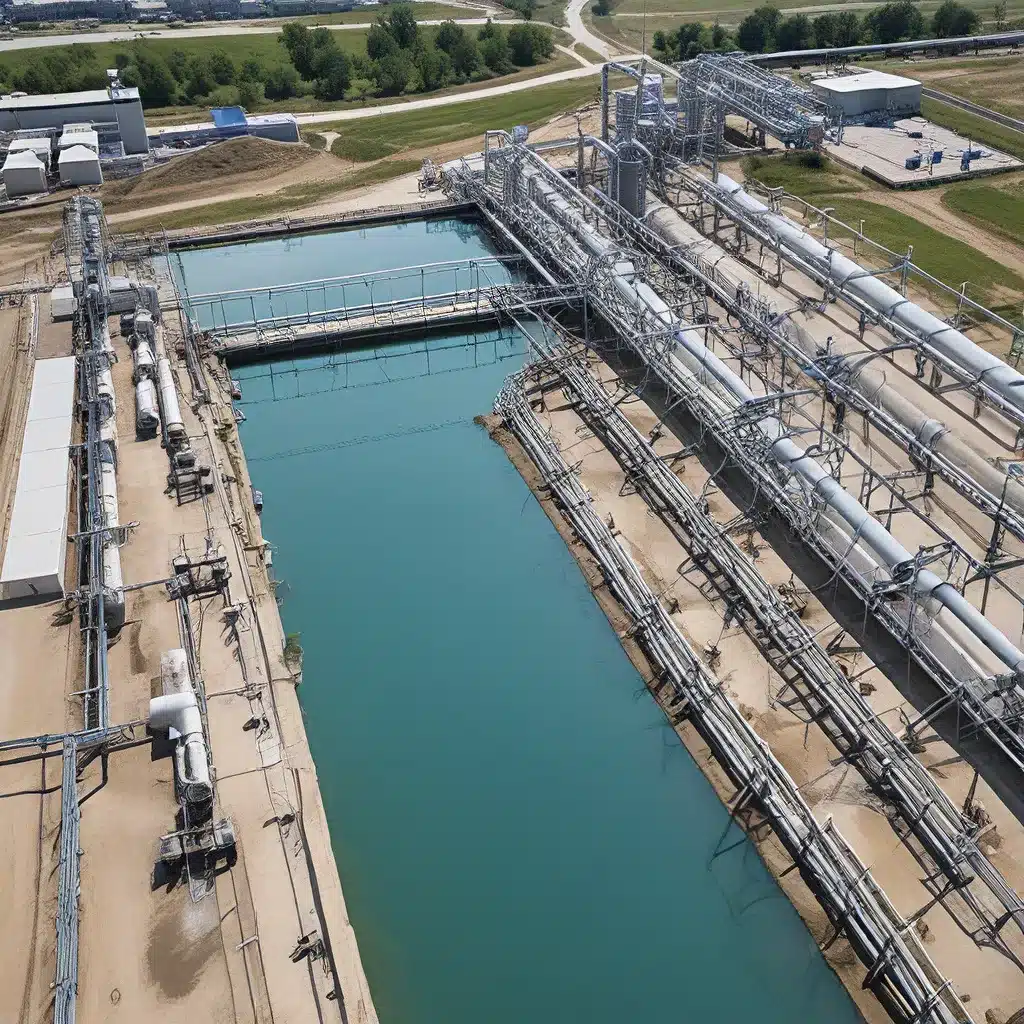
As someone who’s been in the water treatment industry for over a decade, I’ve seen my fair share of technological advancements and process optimizations. But let me tell you, the game-changer in recent years has been the power of data-driven insights. It’s like having a crystal ball that can predict the future of your water treatment operations – and trust me, it’s a game-changer.
Unlocking the Potential of Data Analytics
When I first started out, we were still relying on gut instinct and manual adjustments to keep our water treatment processes running smoothly. But then the data revolution hit, and suddenly, we had access to a wealth of information that could help us make more informed decisions.
Ecolab, a leading provider of water treatment solutions, has been at the forefront of this data-driven transformation. They’ve developed advanced analytics tools that can take in real-time data from sensors and meters, and then use machine learning algorithms to identify patterns and optimize the treatment process.
Optimizing Polymer Dosage for Sludge Dewatering
One of the key areas where data-driven insights have made a huge impact is in sludge dewatering. ProcessMiner, a company specializing in wastewater treatment solutions, has developed an innovative platform that uses AI and intelligent sensors to continuously monitor and optimize the polymer dosage.
You see, the amount of polymer you use in the sludge dewatering process can have a massive impact on your overall efficiency and cost-effectiveness. Too little, and you end up with a wet, sticky sludge that’s a pain to handle. Too much, and you’re wasting money on unnecessary chemicals.
But with ProcessMiner’s platform, you can say goodbye to the guesswork. The system analyzes historical and real-time data to predict the optimal polymer dosage, and then automatically adjusts the amount to keep the sludge at the perfect consistency. This not only saves you money on chemicals, but it also reduces the energy required for dewatering and lowers your disposal costs.
Reducing Energy Consumption and Environmental Impact
And the benefits don’t stop there. By optimizing the sludge dewatering process, you can also significantly reduce your energy consumption and carbon footprint. Research has shown that inefficient wastewater treatment can lead to increased energy usage and a higher overall environmental impact.
But with ProcessMiner’s advanced solutions, you can address these challenges head-on. By continuously monitoring and adjusting the sludge dewatering process, you can reduce the amount of energy needed for things like mixing, pumping, and thermal drying. And with more consistent sludge quality, you can also minimize the need for costly disposal and incineration.
Navigating Regulatory Challenges
Of course, the water treatment industry is no stranger to regulatory challenges. As new contaminants like PFAS and microplastics emerge, keeping up with the latest standards can be a real headache.
But here’s where data-driven insights can be a lifesaver. ProcessMiner’s platform doesn’t just optimize the treatment process – it also helps you stay ahead of the curve when it comes to compliance. By continuously monitoring water quality and making real-time adjustments, you can ensure that your filtrate meets the latest regulatory requirements, even as they evolve.
The Future of Water Treatment: A Data-Driven Approach
As we look to the future of the water treatment industry, it’s clear that data-driven insights will play an increasingly crucial role. Inland Waters, Inc., a leading provider of water treatment and environmental services, is already embracing this new era of data-driven optimization.
By partnering with innovative companies like Ecolab and ProcessMiner, Inland Waters is able to leverage the power of advanced analytics and AI to improve the efficiency and sustainability of their water treatment processes. And the results speak for themselves – reduced energy consumption, lower chemical usage, and a smaller environmental footprint.
Conclusion: Embracing the Data Revolution
As I reflect on my journey in the water treatment industry, I can’t help but feel excited about the future. The ability to harness data-driven insights has truly revolutionized the way we approach process optimization. No longer are we relying on gut instinct or manual adjustments – now, we have the power to predict, adapt, and continuously improve.
So, if you’re ready to take your water treatment operations to the next level, I encourage you to embrace the data revolution. Who knows, it might just be the key to unlocking a whole new era of efficiency, sustainability, and compliance.


